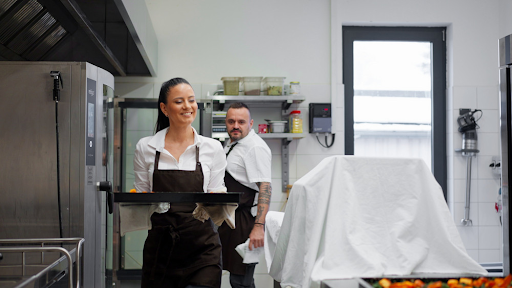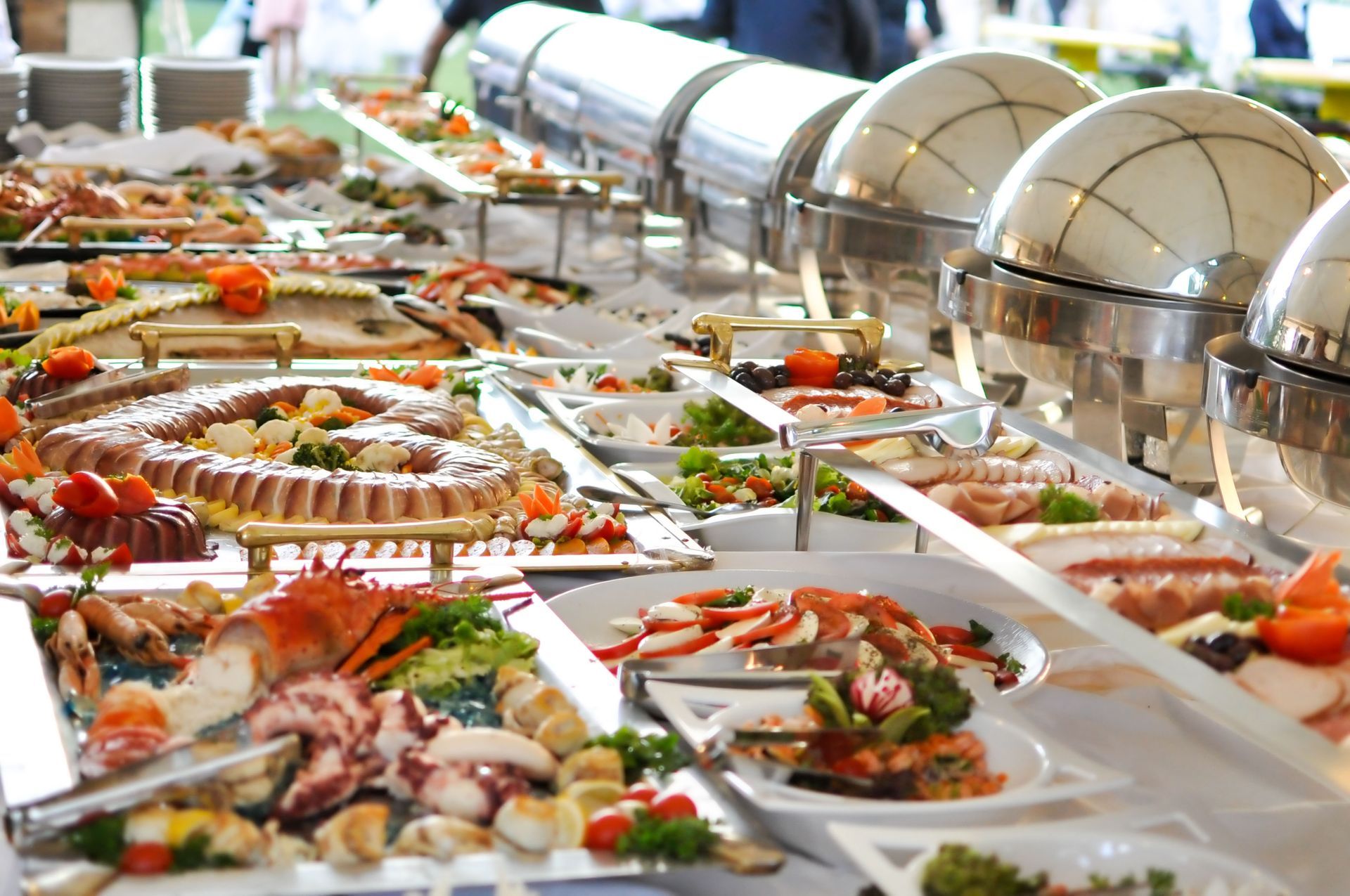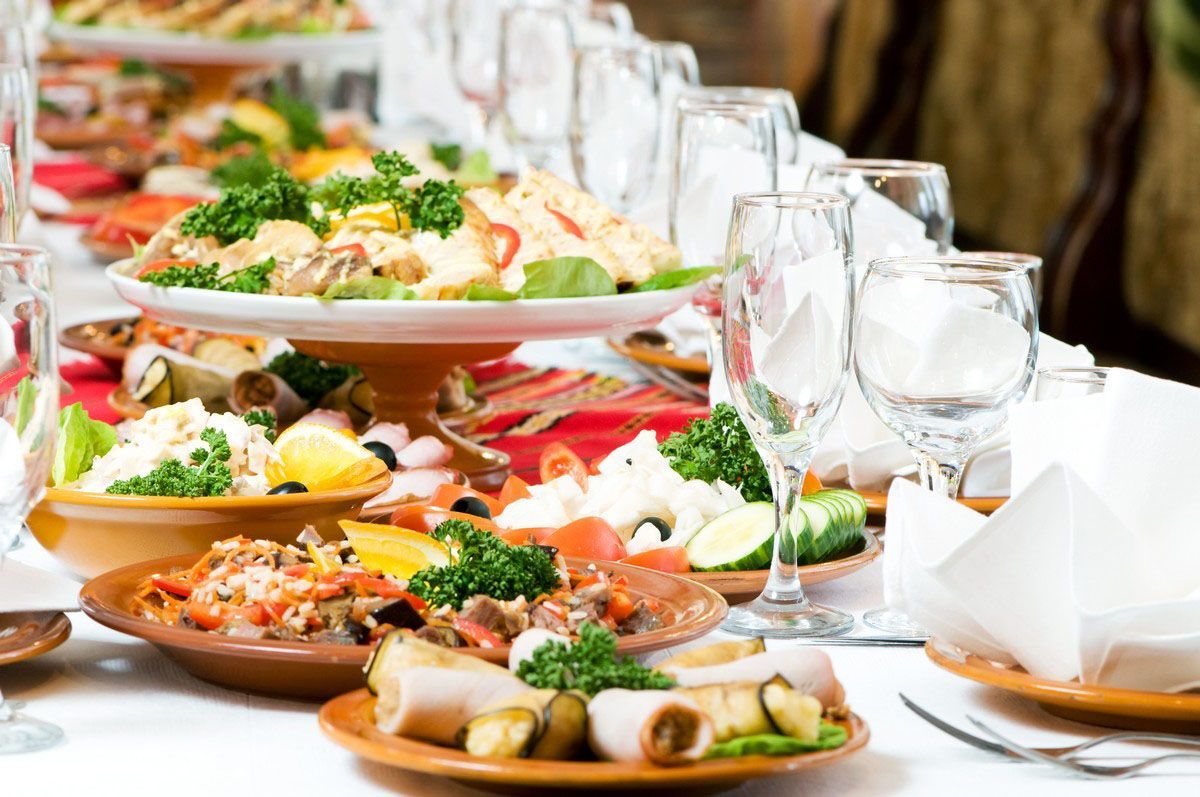Experience Counts: How to Spot a Great Caterer Before You Book
Highlights
- Key traits that separate seasoned caterers from newcomers
- Simple ways to verify licensing, insurance, and food-safety certification
- Red-flag shortcuts that signal a company isn’t ready for prime time
- How Seasons Catering applies every benchmark—and why experience still matters most
A flawless menu begins long before the first tray leaves the kitchen. The caterer you hire will manage staffing, logistics, and food safety while shaping the guest experience you worked so hard to plan. Choosing a team with proven expertise saves time, reduces risk, and lets you focus on celebrating instead of troubleshooting. Below is a concise, experience-driven roadmap that will help you pick a caterer capable of steering any event—wedding, fundraiser, or corporate gala—to a delicious finish.
Start With Social Proof
Trustworthy caterers accumulate reputations the old-fashioned way: consistent performance and enthusiastic referrals. Start your search with industry awards, verified online reviews, and photo galleries that show real events—not stock images. Ask prospects for references from venues similar to yours, then follow up. Seasoned teams readily share client testimonials and health-inspection scores; rookies often dodge the question or send generic praise. If a company like Seasons Catering can point to a decade of five-star ratings and partnerships with marquee venues, you can book with far more confidence.
Did you know? In culinary slang, a “hot box” isn’t just warming equipment—it’s also the nickname caterers give the event van that carries it. Veterans often christen their favorite trucks for luck!
Don’t Skip the Paperwork
Licensing and insurance prove that a caterer can legally operate and protect your guests. Request a copy of their business license, general liability policy, and—crucially—proof of food-safety training. ServSafe® is the nation’s most widely recognized certification, and its managers’ exam covers hazard analysis, allergen management, and time-temperature controls—core skills that keep catered food safe from prep to plate. A credible firm emails these documents within minutes; hesitation or missing paperwork is a bright-red warning light.
Also, confirm that they carry liquor liability insurance if they’ll be serving alcohol. Many venues require it, and it’s an overlooked detail among less experienced teams.
Judge Their Team, Not Just Their Menu
Staff quality is the hidden engine behind seamless service. Experienced caterers invest in training that covers knife skills, buffet set-up, and table etiquette. They also cross-train crews for peak seasons when weddings, graduations, and corporate retreats stack up. Catersource notes that veteran caterers rely on documented onboarding programs—shadow shifts, skills checklists, and safety drills—to ensure every temporary or seasonal hire can meet brand standards from day one. Ask how many events your lead captain runs per month and how backups are assigned if illness strikes; smooth answers reveal real depth.
The Tasting Should Be a Preview, Not a Pitch
Tastings should feel like mini-events, not cafeteria samplers. Look for thoughtful pacing, plated garnishes, and servers who describe each dish with the same polish they’ll use on event day. The chef should welcome feedback and suggest seasonal tweaks rather than pushing fixed packages. If your caterer can pivot a crowd-pleasing entrée to accommodate gluten-free guests without sacrificing flavor, you’ve struck gold. Seasons Catering typically schedules tastings 60–90 days out, leaving enough runway to finesse recipes and confirm final counts.
How far in advance should I book a top-tier caterer?
Six to twelve months for peak-season Saturdays; three months may suffice for weekday or off-season events.
Is full-service always better than drop-off?
Full-service adds labor and rentals but removes stress. Drop-off works for casual gatherings with volunteer helpers.
What’s the standard gratuity?
Many caterers add 18% service charge; tipping captains and chefs an extra 5%–10% for exemplary work is optional but appreciated.
Experience Shows in Execution
Great caterers master logistics long before guests arrive. Ask who coordinates rentals, trucks, and venue access. Seasoned teams map load-in routes, pre-label buffet stations, and tape floor plans to kitchen doors. They assign floaters to clear dishes, refill water pitchers, and liaise with DJs so meal cues align with speeches. When every role is listed on a call sheet, you know the company has navigated tight docks, freight elevators, and sudden rainstorms before, and your event will benefit from that muscle memory.
Communication Is Everything
Clear communication differentiates artisans from amateurs. Pros send proposal revisions within 48 hours, answer emails in complete sentences, and recap phone calls in writing. Timelines arrive as color-coded spreadsheets, not cryptic bullet lists. You should never feel like you’re chasing someone down for answers. Great caterers anticipate your questions, not dodge them. Expect transparent breakdowns for labor, rentals, and specialty ingredients. Your point of contact should walk you through cancellation clauses and explain when final headcounts lock. If the sales rep can’t—or won’t—translate contract jargon, consider how they might handle last-minute menu changes on show day.
Did you know? Wedding caterers track serving utensils with colored tape so carving knives don’t escape to the dessert station. The system is so effective that some planners use the same codes for floral clippers and microphone cables!
Look Beyond the Menu: Cultural Sensitivity and Flexibility
An experienced caterer brings more than culinary skill—they bring emotional intelligence to the table. Ask if they’ve handled events with cultural or religious dietary requirements. Can they prepare kosher-style meals, halal dishes, or meat-free feasts that respect both flavor and tradition? Seasoned professionals approach these requests with respect, curiosity, and creativity. If your event spans multiple backgrounds—like multicultural weddings or international delegations—the right caterer will adapt without compromising quality or guest satisfaction. These aren't just "extras"—they’re signs you’re working with a company that's prepared for real-world diversity.
Ask About Trends—and See How They Adapt
Choosing a caterer who follows food-service trends helps you impress guests without chasing every fad. The National Restaurant Association’s 2025 State of the Restaurant Industry report lists local sourcing, plant-forward entrées, and zero-waste practices as top culinary drivers—ideas that experienced caterers are already weaving into menus and presentation styles. Ask how the chef reduces food waste, sources seasonal produce, or handles dietary surges like vegan or keto. A confident answer signals creative chops and operational readiness.
Experienced caterers are also flexible enough to make last-minute changes. If your guest list shifts from 80 to 120, or if a power outage forces a kitchen change, a true pro has a plan—and a backup plan.
See the Difference With Seasons Catering
In the end, experience is the safeguard your celebration deserves. Proven caterers document every detail, respect budgets, and pivot gracefully when weather, traffic, or guest counts shift. They carry duplicate utensils and backup linens, sync with venue managers for fire-code compliance, and know when to polish chafers so reflections don’t show up in photographs. That level of foresight only comes from years—and hundreds of events—under their belts.
Seasons Catering excels in this area, providing not just meals but an entire service ecosystem built around anticipation, professionalism, and guest satisfaction. With more than fifteen years of acclaimed service across upstate New York, industry-certified chefs, and a crew trained in both fine-dining finesse and high-volume efficiency, the company exemplifies every benchmark outlined above. Whether you’re hosting a black-tie fundraiser in downtown Albany or a lakeside family reunion, Seasons Catering turns experience into peace of mind—and unforgettable flavor.






Share On: